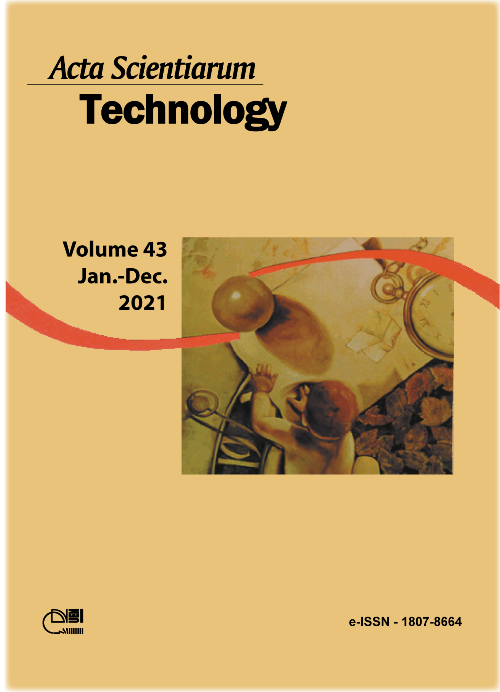Evaluation of the teachers´ digital competences in primary and secondary education in Portugal with DigCompEdu CheckIn in pandemic times
DOI:
https://doi.org/10.4025/actascitechnol.v43i1.56383Palavras-chave:
COVID-19; digital technologies; teacher training; DigCompEdu CheckIn; digital competenceResumo
The current pandemic crisis the world is living in has brought new and emerging challenges to teachers, making it essential to acquire digital skills, especially in virtual learning environments and online technologies. In this sense, from the DigCompEdu CheckIn self-assessment questionnaire, validated for the Portuguese population by Dias-Trindade, Moreira, and Nunes (2019), the research presented in this paper aims to identify the most fragile and robust areas of digital skills of primary and secondary education (ISCED) perceived by teachers in Portugal. The quantitative methodological approach emphasizes teachers' perception of their digital skills in three dimensions: teachers´ professional competences, teachers´ pedagogical competences and students' competences and involved 434 teachers from mainland Portugal and the Autonomous Regions. The results allow us to conclude that teachers have an overall moderate level of digital proficiency - level B1 - Integrators - and the dimensions pedagogical competences and students´ competences are those where teachers have more weaknesses than in other levels. From a panorama observed before the onset of the COVID-19 pandemic, it is possible to understand their needs regarding work that involves digital technologies at different moments in the teaching activity. The results thus, show the need for teachers to increase their level of digital competence through specific training and the importance of developing public policies that prepare teachers for a more digital school.
Downloads
Downloads
Publicado
Como Citar
Edição
Seção
Licença
DECLARAÇíO DE ORIGINALIDADE E DIREITOS AUTORAIS
Declaro que o presente artigo é original, não tendo sido submetido í publicação em qualquer outro periódico nacional ou internacional, quer seja em parte ou em sua totalidade.
Os direitos autorais pertencem exclusivamente aos autores. Os direitos de licenciamento utilizados pelo periódico é a licença Creative Commons Attribution 4.0 (CC BY 4.0): são permitidos o compartilhamento (cópia e distribuição do material em qualqer meio ou formato) e adaptação (remix, transformação e criação de material a partir do conteúdo assim licenciado para quaisquer fins, inclusive comerciais.
Recomenda-se a leitura desse link para maiores informações sobre o tema: fornecimento de créditos e referências de forma correta, entre outros detalhes cruciais para uso adequado do material licenciado.



















